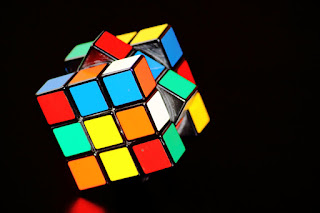Most people with a steady job know when they will be working. Their shifts are laid out in advance or they might get a call when it's time to come in to work. With people who work from home this can be less clearly defined, but generally even we know what is a work task and what isn't.
Then there's the fun things in life. Hockey practice, craft hobbies, meetings with fellow enthusiasts specifically to discuss a topic of interest. Days off or weekends are also time when we do whatever we want and have fun.
There is a third category of task, however, that I didn't realize existed up until recently. It hovers just outside our consciousness, unseen, but its effects can be felt. These are the tasks that can be defined by not fitting into either work or play time. They therefore have no designated time in our lives and as a result often don't get taken care of.
For people with ADHD, this particularly hard to tackle because although these tasks are often important, they are not usually urgent. ADHD is programmed to notice and react to things that are urgent. For more info on this concept, this video.
These tasks could be an email to a relative updating them on an ailing family member, filing personal paperwork, writing a will, housework, or exercise.
So much emphasis is placed on work and play, one more than the other unfortunately, that these little tasks just keep falling through the cracks. Each time I remember one, I feel bad, guilty, even ashamed I haven't gotten to them yet. After all, most of them take such a small amount of time!
In order to defend my energy from this invisible drain, I do two things:
1. Designate time
The biggest trap is that these grey area tasks have no specific time in which to do them. So I've designated time. I try to do one small item during my evening routine. I use my reminder app and label these tasks “Miscellaneous” so I can find them easily and not forget them.
An alternate method of remembering the tasks would be to email them to myself, the subject line reading “Miscellaneous task”, this makes it searchable within the email program. Then, when it's time to take care of them, search for those emails and delete them as they are taken care of.
2. Schedule reoccurring tasks
Housework used to fall under this neglected and guilt-ridden category for me. Because this is a set of tasks that will need to be repeated my whole life, I now have a specific day set aside for it and I connected the work to a weekly phone call to a friend, so I don't dread the tasks as much.
Any miscellaneous task that will reoccur is more efficient to schedule. It will weigh on me less, as long as I find the correct way to make sure I'll follow through with it.
I feel a little warm glow of energy when I take care of one of these tasks. It's like un-pilling the straw from the camel before its back breaks.
What little tasks are eating away at your energy?












